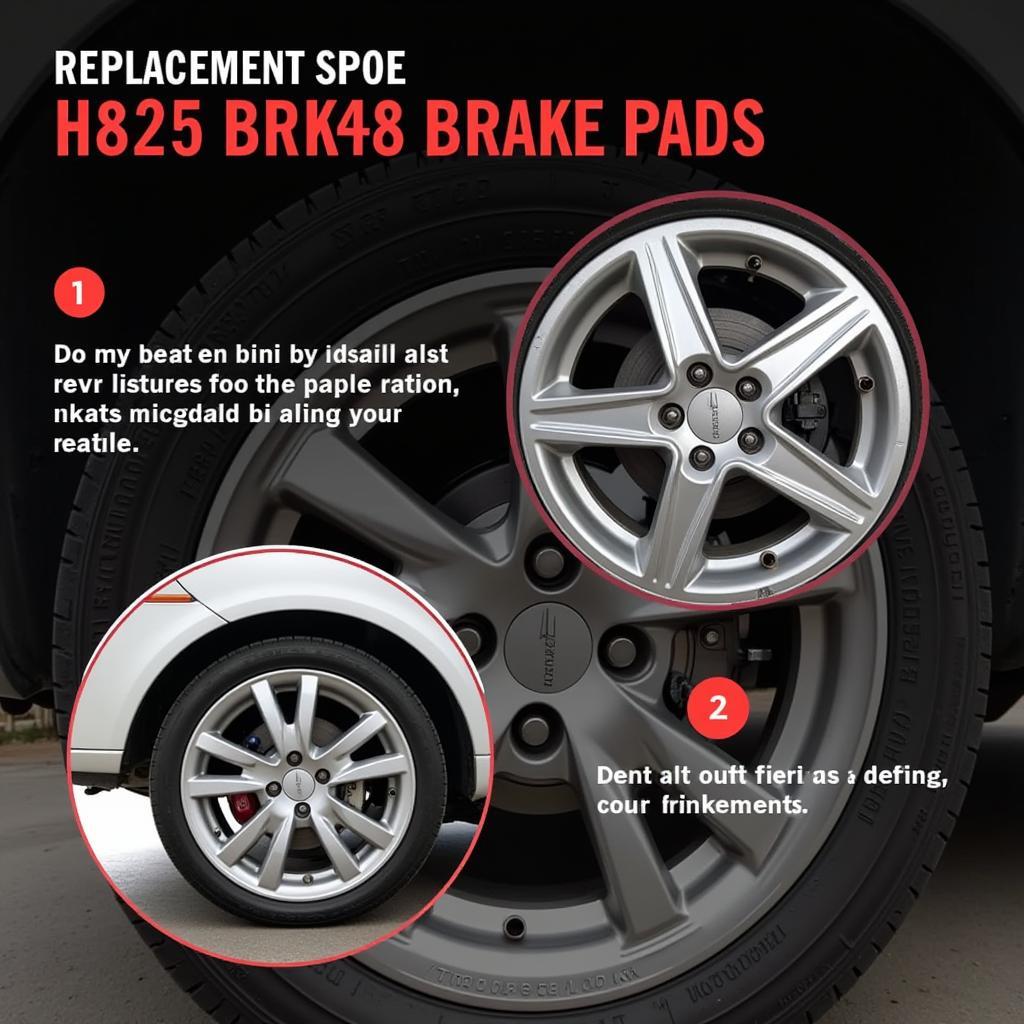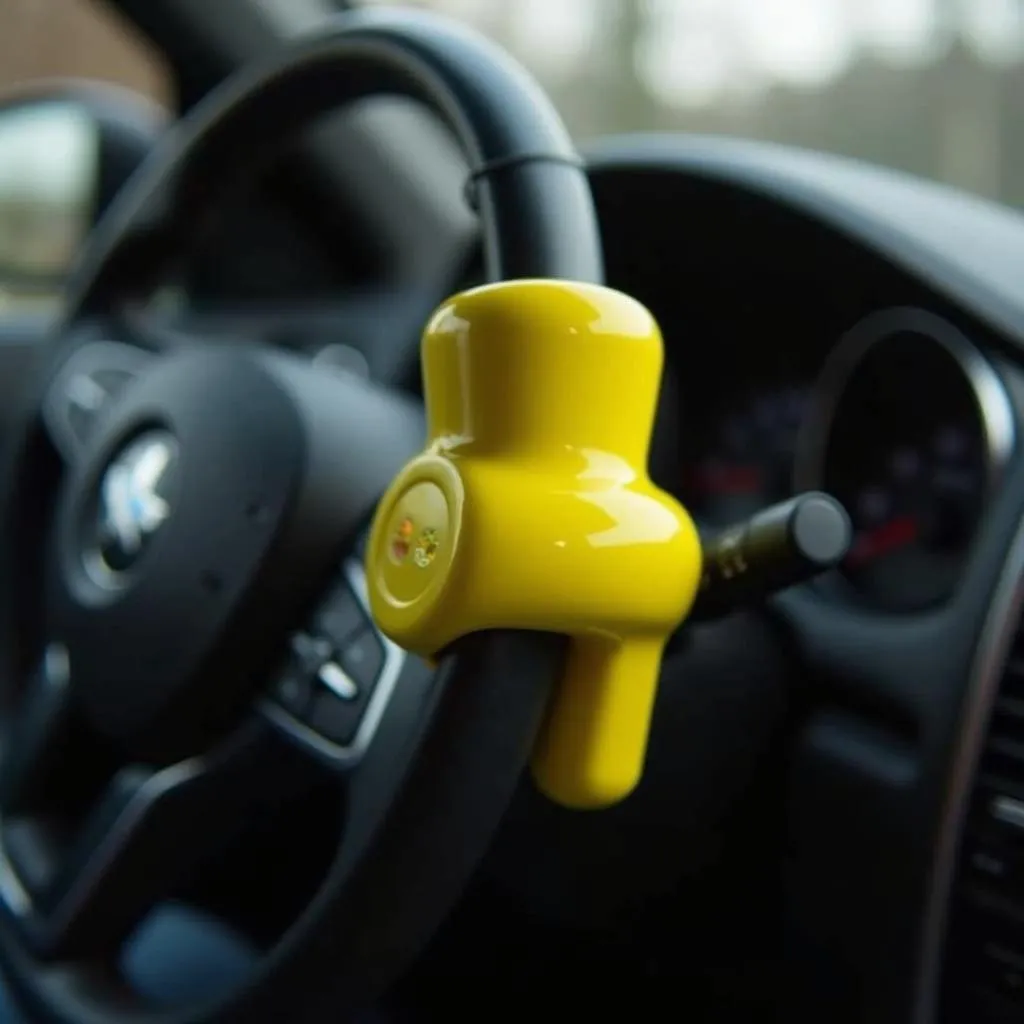A glowing brake lamp warning light on your 2002 Honda Accord’s dashboard can be an unwelcome sight. This light signals a problem with your car’s braking system, which is critical for your safety and the safety of others on the road. While it might seem intimidating, diagnosing and even fixing this issue yourself might be easier than you think. This comprehensive guide will walk you through the common causes, troubleshooting tips, and even potential solutions for addressing a brake lamp warning light on your 2002 Honda Accord.
Understanding Your Brake Lamp Warning Light
The brake lamp warning light is designed to alert you about potential issues within your Honda Accord’s braking system. When illuminated, it means one or more components might be malfunctioning, requiring your immediate attention. Ignoring this warning could lead to reduced braking performance and potentially dangerous driving situations.
Common Causes of a Brake Lamp Warning Light
Several culprits could be triggering the brake lamp warning light on your 2002 Honda Accord. Here are some of the most common causes:
-
Burnt-Out Brake Light Bulbs: One of the most frequent and straightforward reasons for this warning light is a simple bulb failure. Your Accord uses individual bulbs for each brake light and a third brake light.
-
Blown Fuse: The brake light circuit is protected by a fuse in your Honda Accord’s fuse box. If this fuse blows, it will interrupt the flow of electricity to your brake lights, causing the warning light to illuminate.
-
Faulty Brake Light Switch: Located behind the brake pedal, the brake light switch is responsible for sending a signal to turn on the brake lights when you depress the pedal. A malfunctioning switch may not provide the correct signal, leading to the warning light appearing on your dashboard.
-
Wiring Problems: Over time, the wiring harness connected to your brake light system can become damaged or corroded. This damage can interrupt the electrical flow and lead to your brake lamp warning light appearing.
Troubleshooting Your Brake Lamp Warning Light
Before heading to a mechanic, there are several checks you can perform yourself to identify the root cause of the brake lamp warning light on your 2002 Honda Accord:
-
Inspect the Brake Light Bulbs: Start with the simplest solution. Visually check all brake light bulbs, including the third brake light, for any signs of burning or damage. If a bulb appears burnt out, replace it with a new one of the correct type.
-
Check the Brake Light Fuse: Consult your owner’s manual for the location of the fuse box and the specific fuse that controls your brake lights. Once located, carefully remove the fuse and inspect it for a broken wire or a darkened glass tube, which indicates a blown fuse. Replace a blown fuse with a new one of the same amperage rating.
-
Test the Brake Light Switch: While visually inspecting the brake light switch can be helpful, you can also test it using a multimeter. This tool allows you to check for continuity, ensuring the switch sends an electrical signal when the brake pedal is pressed.
“It’s always a good idea to have a basic understanding of your car’s electrical system when troubleshooting warning lights,” says master mechanic John Smith. “A multimeter can be your best friend in these situations, helping pinpoint the faulty component.”
When to Consult a Mechanic
If you’ve gone through the troubleshooting steps above and your brake lamp warning light remains illuminated, it’s best to seek professional assistance from a qualified mechanic. More complex issues, like wiring harness problems, often require specialized tools and expertise to diagnose and repair properly.
Addressing the Brake Lamp Warning Light: Prioritizing Safety
The brake lamp warning light on your 2002 Honda Accord is a crucial safety feature that should never be ignored. By understanding the common causes and following the troubleshooting steps outlined in this guide, you can often identify and potentially fix the problem yourself. However, always remember that if you are unsure or uncomfortable performing these checks, it is always safest to consult a professional mechanic to ensure your Honda Accord’s braking system functions optimally.
FAQs
Q: Can I still drive my car with the brake lamp warning light on?
A: It’s not recommended. Driving with a malfunctioning brake light system significantly increases the risk of accidents, as other drivers may not be aware when you are braking.
Q: How much does it cost to fix a brake lamp warning light?
A: The cost can vary depending on the root cause. A simple bulb replacement might only cost a few dollars, while a faulty brake light switch or wiring issue could cost significantly more.
Q: How often should I check my brake lights?
A: It’s good practice to visually inspect your brake lights at least once a month to ensure they are functioning correctly.
Q: Can I replace the brake light bulbs myself?
A: Yes, replacing brake light bulbs is generally a simple DIY task. Refer to your owner’s manual for instructions specific to your 2002 Honda Accord model.
Q: What is the brake light fuse amperage for a 2002 Honda Accord?
A: It is crucial to consult your owner’s manual for the precise fuse amperage, as using the incorrect rating can cause damage to your car’s electrical system.


